Haramaya University conducted its 40th Annual Research Extension and Community Engagement Review Workshop on June 15-16, 2023, at Haramaya University’s Afran Qalo Hall. The workshop theme was “Enhancing the Research Impact through Community Engagement and Partnership.”
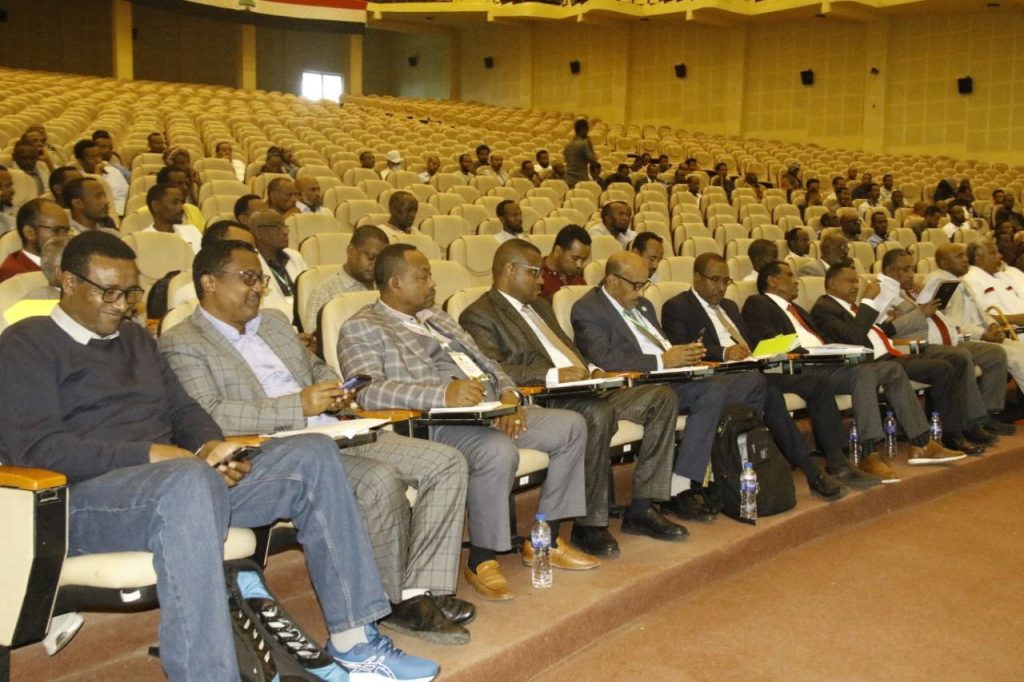
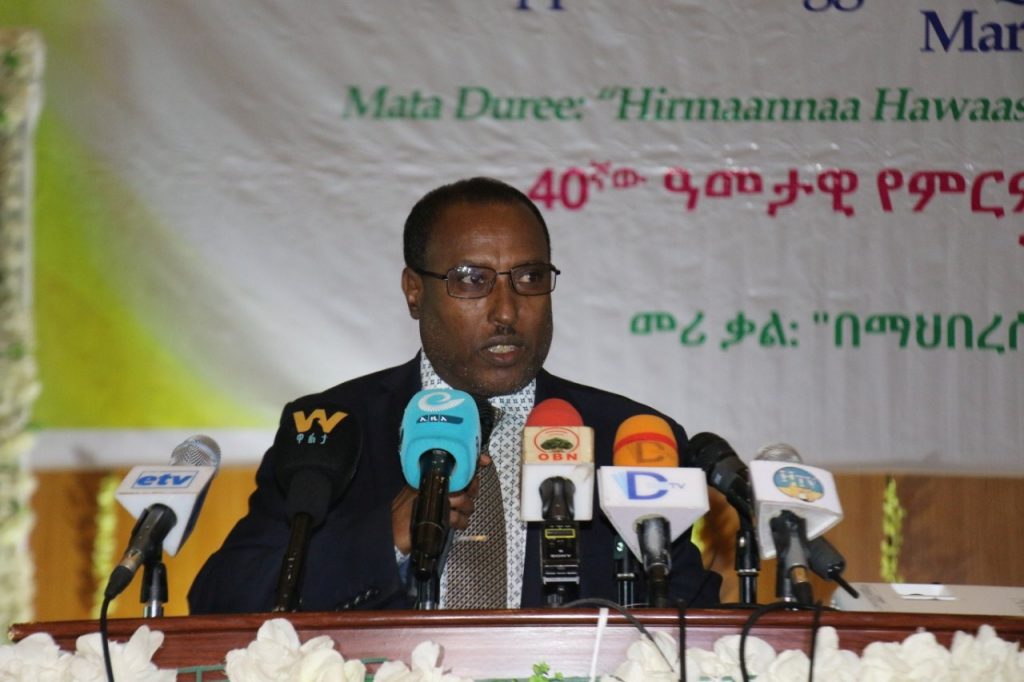
During the opening, Professor Mengistu Urge, the Vice President for Academic Affairs, presented a speech, indicating that the workshop focused on presenting and evaluating research and extension works carried out by the university in agriculture and animals, health, nature and ecology, social science and business, and technology. He also added that Haramaya University has generated promising results by conducting several research projects in agriculture, animal science, community health, soil and water conservation, and delivering them to the community. The university’s research shows that their efforts to solve society’s problems by generating knowledge are effective.
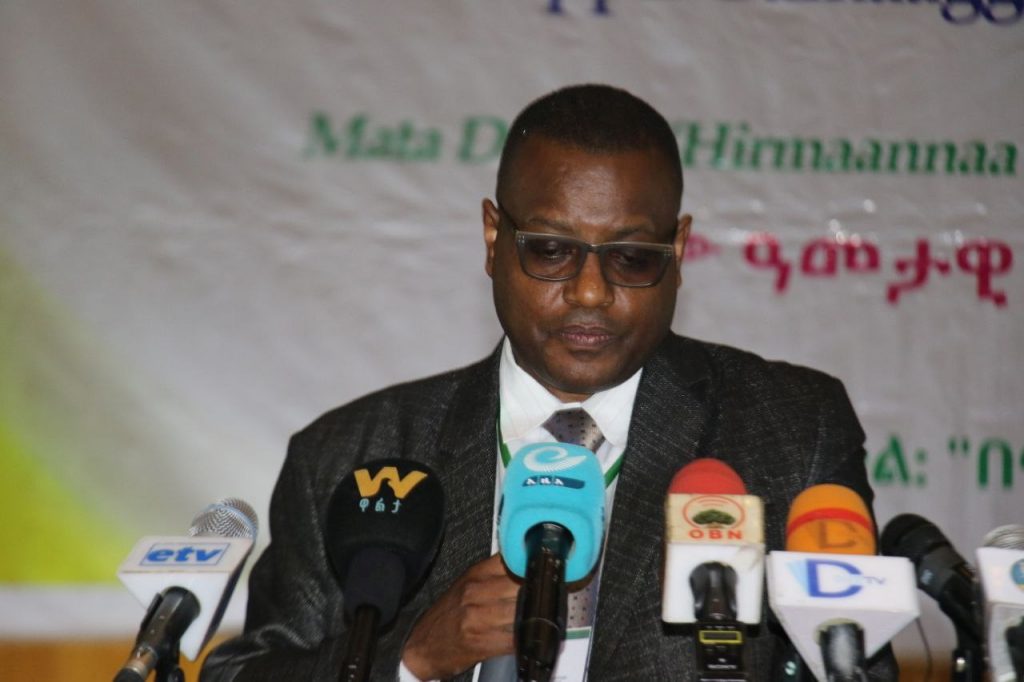
Dr. Tesfaye Lema, the Vice President of Research Affairs, in his speech stating the workshop’s importance in evaluating the research and community service works done every year and setting the next focus for local communities, governmental and non-governmental stakeholders. He mentioned that higher education institutions’ missions are to carry out quality research and deliver it to the user community, and the workshop provided a platform for evaluating results and gain feedback. Dr. Tesfaye added that the university provides research technologies to the community through farmer training, model farmers’ fields, cooperatives, youth, and women’s centers, delivering improved crops, vegetables, and 19 animal feed species and technological results to the farmers.
The report presented at the conference indicated that Haramaya University is carrying out various research activities working on improved animal breeding technology, crops, natural resource protection, and post-harvest management. They also designed and implemented 296 research projects in the six areas of focus. Among the significant projects are the development of agriculture and animal resources, health, social science and business, as well as the fields of education and behavior.
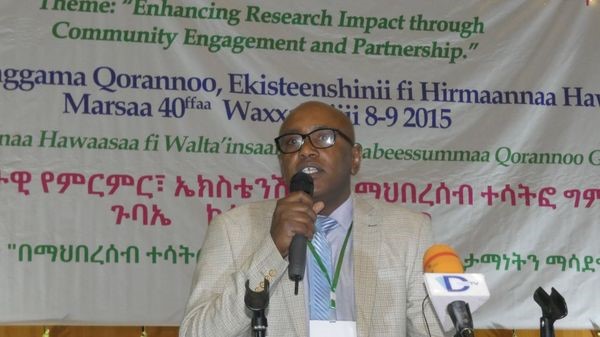
According to Dr. Yisak Yusuf, Vice President of Community Engagement and Enterprise Development, Haramaya University works together with its partners and its own capacity to solve problems that challenge society’s life. They coordinate with partners actively working on environmental protection, education, health, job creation, and providing access to education, educational materials, and training to schools in the area. He explained that the University is still providing free legal services to citizens at 43 centers at Harari region, in East and West Hararghe zones of Oromia region.
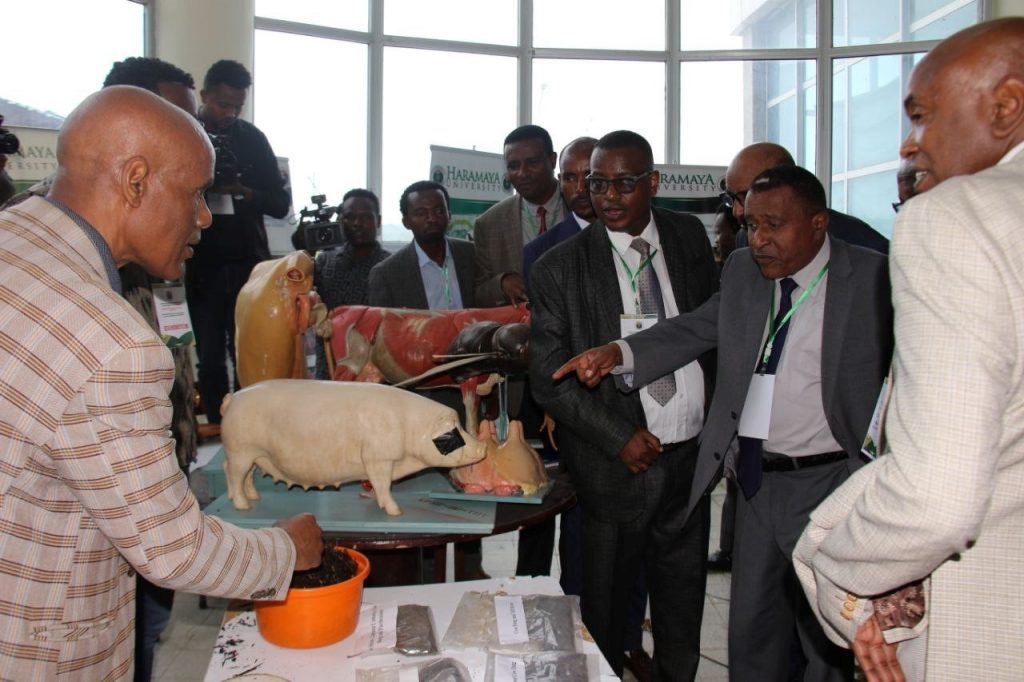
The workshop noted a remarkable progress in research relevance and community impact. Major challenges were discussed, and solutions were suggested. Extensive discussions were held on the research works presented and stated the remarkable improvement made in the relevance of research and its impact on society. Furthermore, an exhibition showcasing the activities, innovations, products, and services carried out by the university, technical and vocational education and training, and the private sector was prepared.
At the conclusion of the 40th Annual Research and Community Service Conference, the Vice President of the Research Affairs Office presented a recognition award to Haramaya University employees who contributed significantly to the efforts to cultivate summer wheat in Eastern Ethiopia.
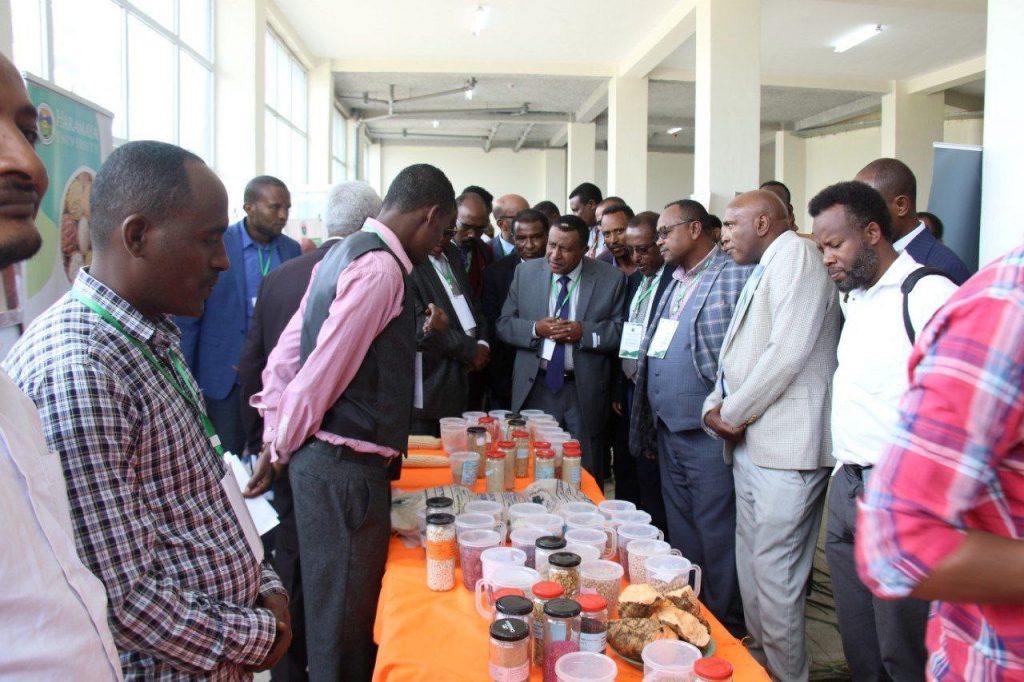
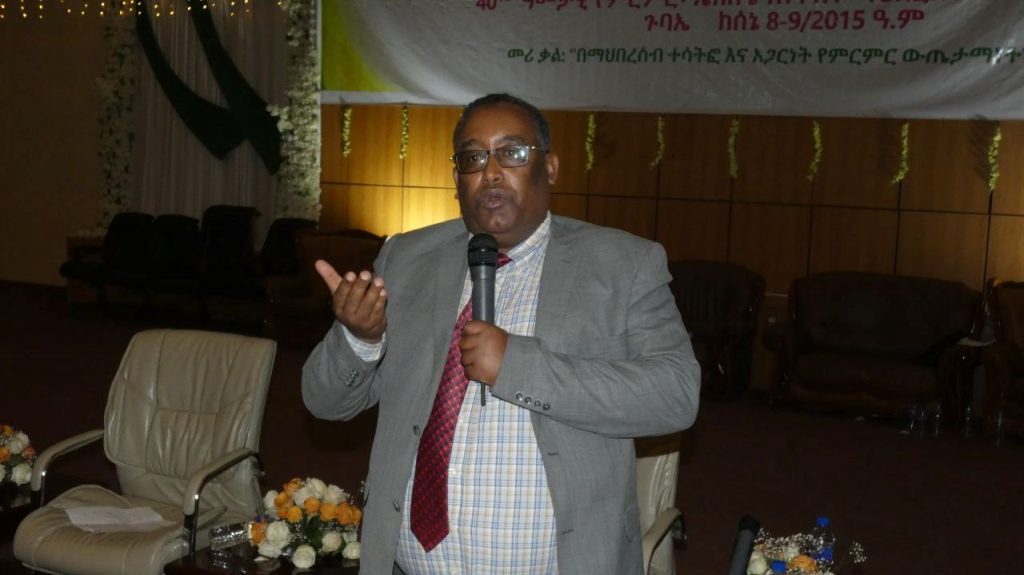
Haramaya University Vice President of Administration and Student Affairs, Prof. Jeylan Waliyi, stated that recognizing employees who achieved results with their own efforts will increase their motivation.
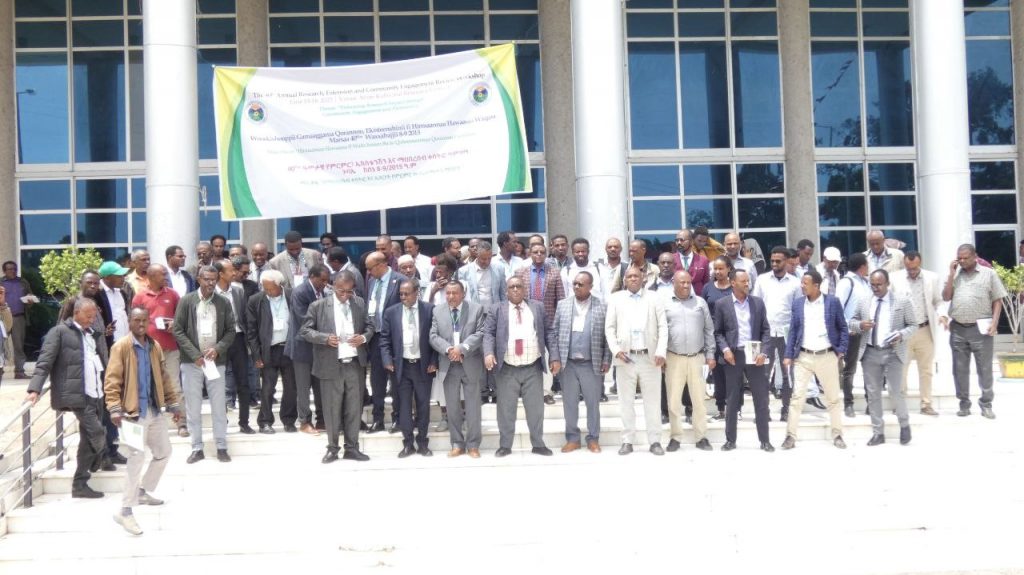
The workshop was attended by government organizations, non-governmental organizations (NGOs), federal and regional research institutes, universities teachers, researchers, farmers’ associations, representatives of Technical and Vocational and Training (TVET) Colleges, community representatives including Aba Geda and religious leaders.
By:- Shemsedin Mohammed
Photographers:- Tewodros Lishan and Foad Ahmed Ali
PIRD

